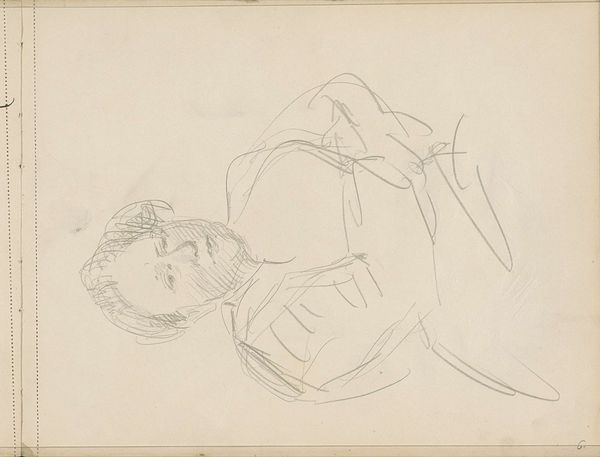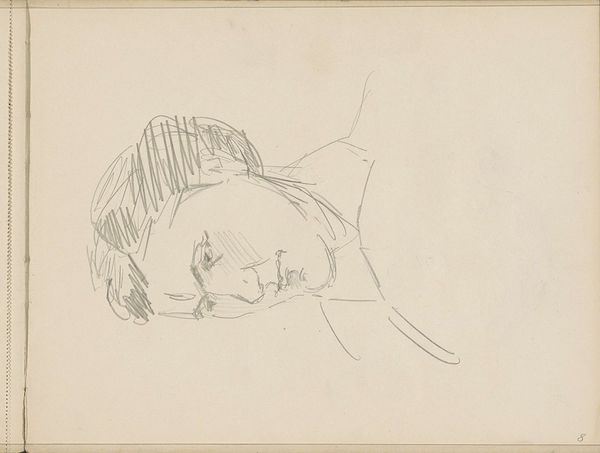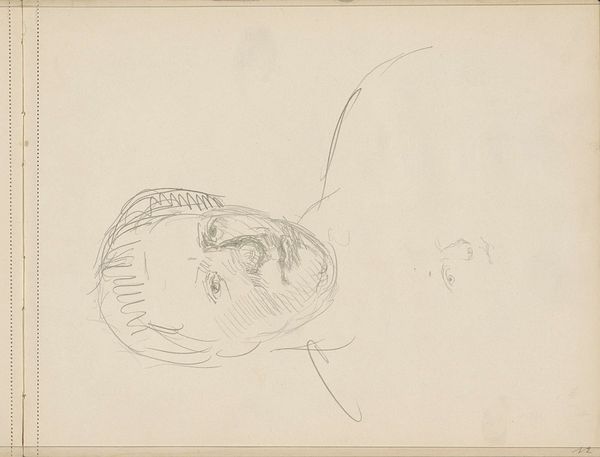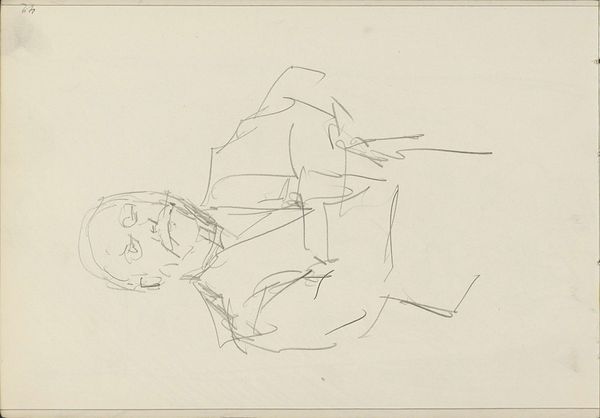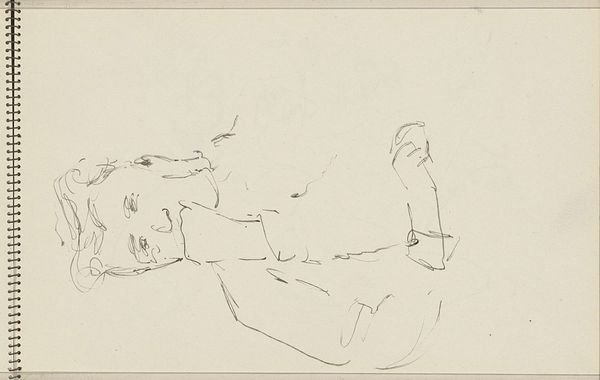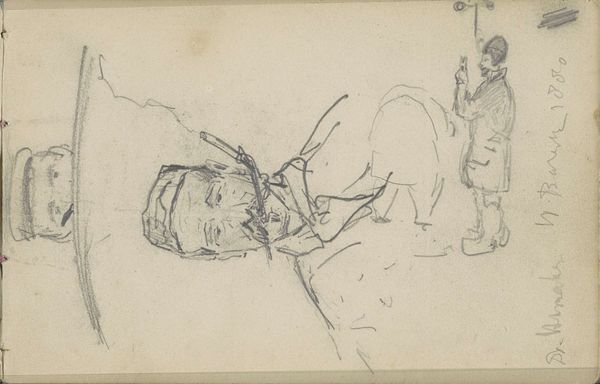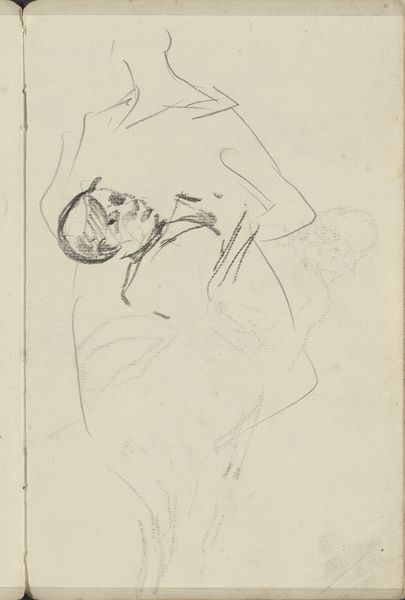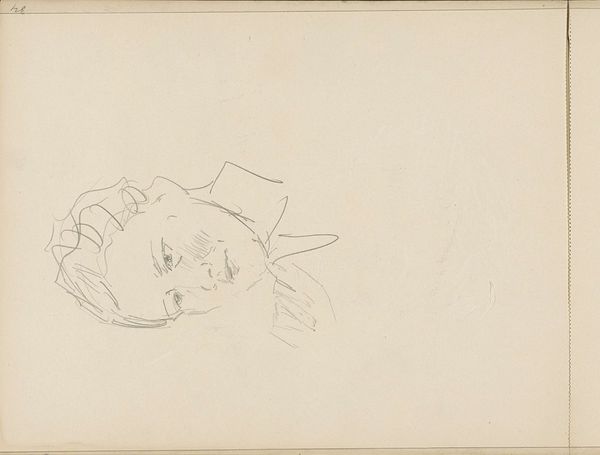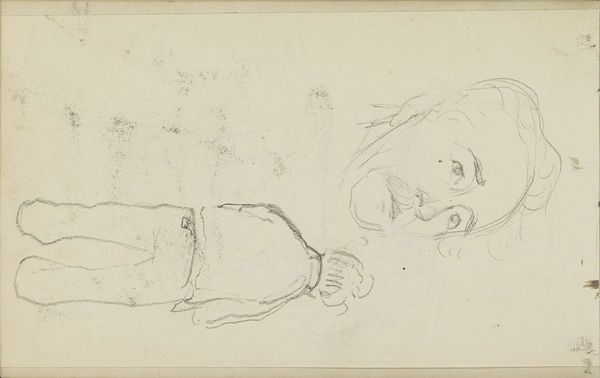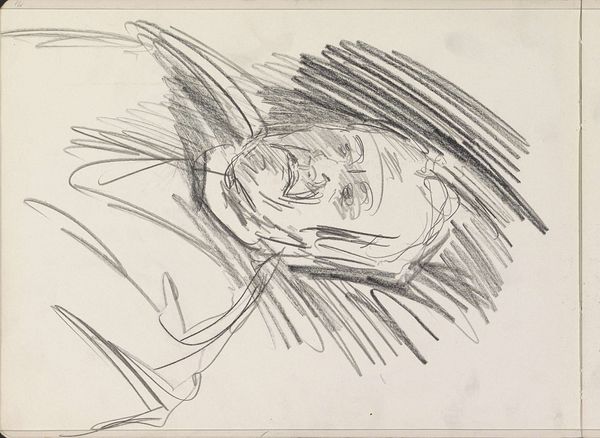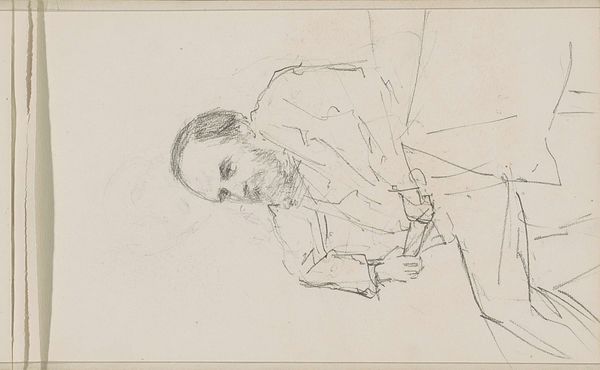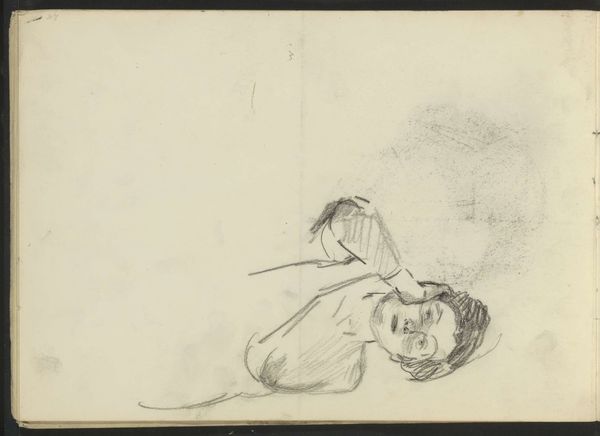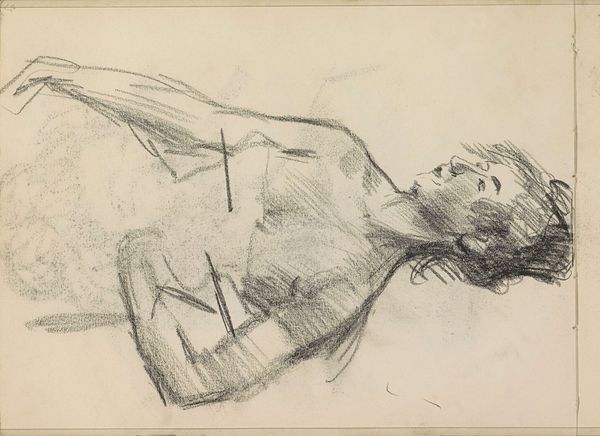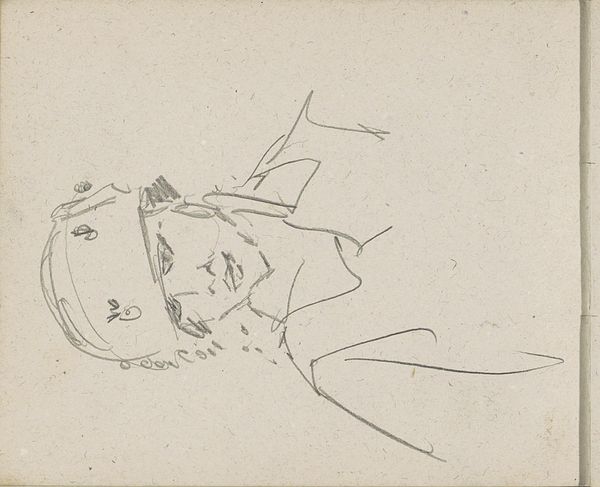
Copyright: Rijks Museum: Open Domain
Curator: Here we have "Portrait of an Unknown Woman," a pencil drawing attributed to Isaac Israels, created sometime between 1875 and 1934. What are your initial thoughts? Editor: It has this very ephemeral quality, like a fleeting thought captured on paper. Almost haunting because she’s an "unknown" woman and so, we are only left with this trace. It seems very personal and intimate, like we're peering into someone's private sketchbook. Curator: Indeed. It reflects the core tenets of Impressionism. Note how Israels prioritizes capturing a sense of immediacy over meticulous detail. What kind of a 'woman' does it call to mind? Editor: The lack of sharp lines actually contributes to a sense of vulnerability. I wonder what the woman's life was like, her social position. Israels often depicted women from diverse backgrounds – from society ladies to working-class individuals. Was this meant to show the 'female form' over identity and purpose? How complicit were those commissions and portrayals? Curator: Intriguing points. Her gaze does convey a kind of weariness. Could the simplicity, the reduction to the essential lines, symbolize a broader experience of women during the late 19th and early 20th centuries – their constrained roles, their relative anonymity in many social spheres? Or perhaps the intention was just to see? Editor: I’m seeing someone wrestling with these ideas even now. I wonder if it invites us to reflect on representation itself—who gets remembered and why? Who are those that are never made into 'history'? Curator: Absolutely. It prompts a dialogue between the historical gaze and our contemporary sensibilities, a re-evaluation of Israels intentions. I like the quietness that surrounds the gaze here; is it an introspection? A question? Editor: For me, the drawing embodies both loss and potential – loss of a concrete identity, but potential for continued remembrance, re-imagination and for creating more equitable frameworks. Curator: So, it continues to provoke questions long after its creation, allowing us a renewed context in which to remember "the unknown".
Comments
No comments
Be the first to comment and join the conversation on the ultimate creative platform.
